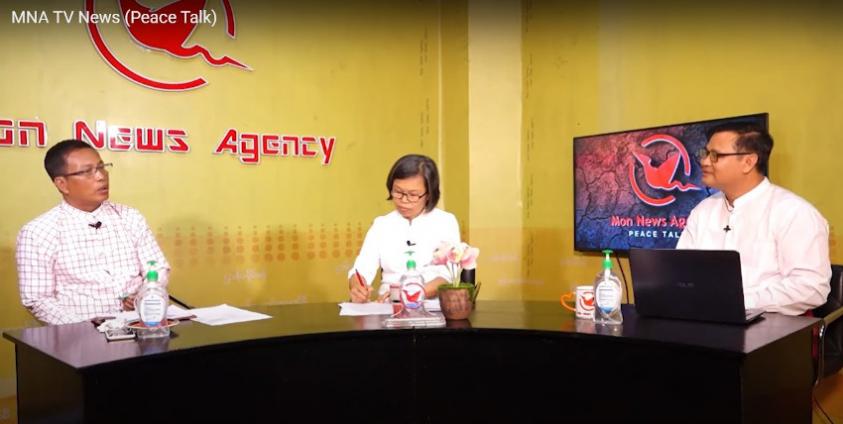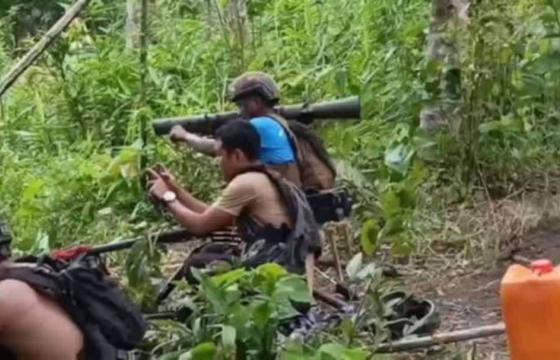The global pandemic of Covid-19 is testing the mutual trust and understanding between the government, the Tatmadaw [Myanmar army] and Ethnic Armed Organizations, in their joint efforts to collaborate in Myanmar’s peace process.
Nai Aung Mangay, spokesperson with the New Mon State Party (NMSP) spoke to this issue, along with other speakers at a Mon News Agency’s Peace Talk held on Wednesday, May 20.
Nai Aung Mangay posed a series of questions at the talk. “How much do organizations involved in the implementation of the peace process understand? How deeply do they trust? How much courtesy do they have? Nai Aung Mangay, suggested that “Covid-19 is like a test of our unity.”
Nai Aung Mangay suggested that if organizations do not individually have mutual understanding, trust and respect, there would be misunderstandings, suspicion, and (conflicts).
“If we take control…, take benefits first …, just because we are strong and we have power, it’s not just, or right. What I want to say is that collaboration should be the model. How much do we understand? By providing assistance, we can also show our understanding and respect for one another,” continued Nai Aung Mangay.
Nai Aung Mangay noted that unity could be implemented for the Rakhine area, which is the poorest area and facing the most difficulties at this moment.
Mi Kon Chan Non, Chairperson of the Mon Women Organization (MWO), said “It is necessary to provide more supplies and assistance for the areas that are in need of it. With generosity, …and assistance … provided … equally, there will be more strength for the peace process. It will be way better. But if one believes that one has the power and can do more and can do better for one’s [own] area, there will be difficulties for the peace process.”
For the sake of the peace process, organizations must go hand-in-hand based, [with each other] on one agreed model, and release statements to this effect. By exchanging information and providing assistance as needed, trust can be built and there will be better understanding, explained Mi Kon Chan Non.
Mi Kon Chan Non added “I thought that given Covid-19, the peace process would be better carried out and peace would be lasting. But if we look at the reality, it is not happening like that. So, it becomes doubtful.”
Mi Kon Chan Non was referring to recent clashes and limitations to the ceasefire agreement. The Tatmadaw announced a limited ceasefire from May 10 to August 31 in certain ethnic areas. Their ceasefire does not apply in areas, like the Rakhine region where the Tatmadaw does not recognize the local ethnic armed organization, categorizing it as an insurgent group or unlawful group.
In addition, on May 20, the Tatmadaw troops and Karen National Union’s Brigade (5) troops clashed twice in KhamaMaung Sub-township, Karen State. The Tatamadaw also removed the KNU’s Covid-19 prevention camps in KNU’s Hpa-Pon District. Since then tensions have been high between the Tatmadaw and KNU








